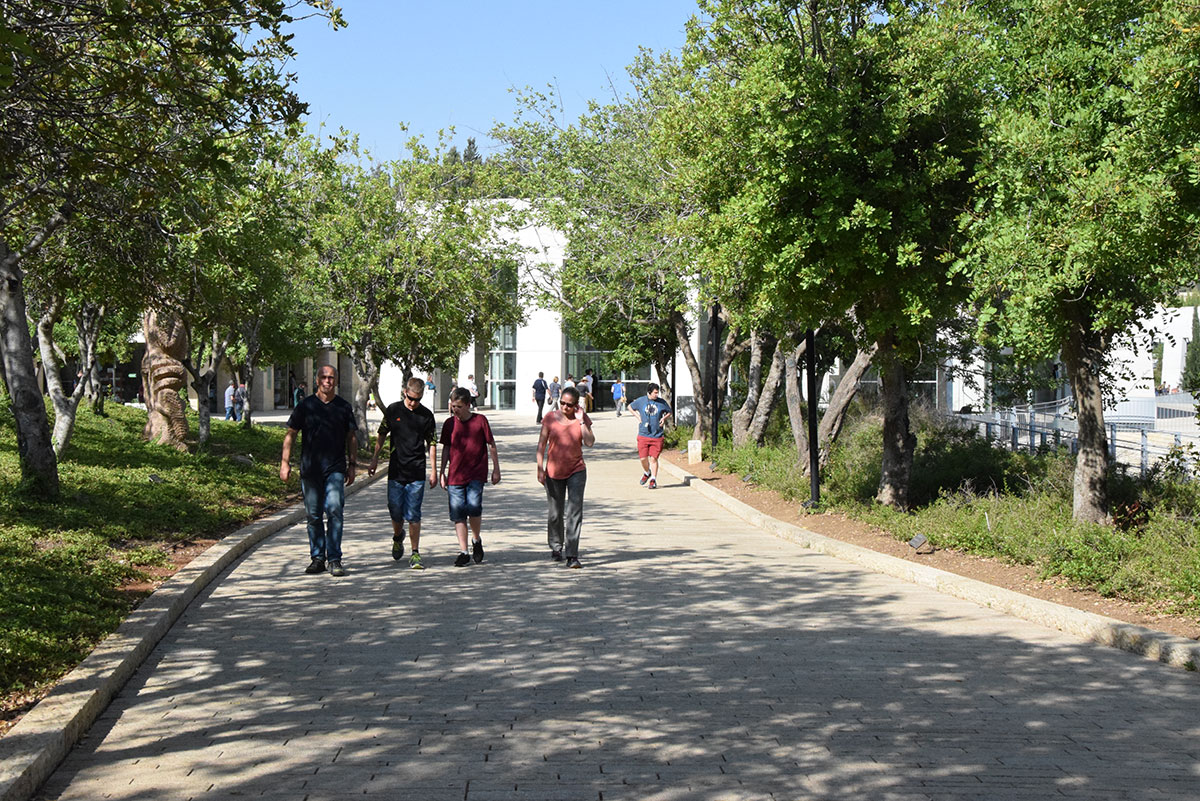
Avenue of the Righteous Among the Nations
An opinion piece that ran in the New York Times accuses Yad Vashem of having different standards for recognizing rescuers of Jews as Righteous Among the Nations, because a Tunisian man, Khaled Abdelwahab was not recognized as a Righteous. Nothing could be further from the truth.
When Yad Vashem was established to commemorate the six million Jews murdered in the Holocaust, it was tasked with another mission: to honor the Righteous Among the Nations - those non-Jews who had taken great risks to save Jews during the Holocaust. The Righteous program is an unprecedented attempt by the victims of an unparalleled crime to search within the nations of perpetrators, collaborators and bystanders for persons who bucked the general trend of indifference, acquiescence and collaboration.
For five decades, Yad Vashem has worked toward this goal, in the process identifying some 24,000 Righteous Among the Nations, without regard to their countries of origin, age, religious denomination, sex, or ethnicity. The Righteous include Christians of all denominations from around the world, as well as Muslims from Turkey, Bosnia and Albania and other countries. The Commission for the Designation of the Righteous, an independent body comprised of Holocaust survivors and historians, examines whether the rescue story can be substantiated by primary sources and if the person in question took risks in order to rescue Jews during the Holocaust.
Holocaust survivors describe myriad forms of help, encouragement and assistance provided by non-Jews, which helped them survive. However, the Yad Vashem law uses a more restrictive characterization when designating the Righteous Among the Nations, delineating a small group within these wider circles of men and women who supported Jews in the darkest hour of Jewish history. The Righteous, according to this definition, were people who not only helped the Jews, but were prepared to pay a price for their stand and even share the victims' fate.
From its inception, the Commission for the Designation of the Righteous noted that the risk in helping Jews during the Holocaust differed from one country to another and from one period to another. In the case of diplomats, who enjoyed diplomatic immunity and only in exceptional circumstances were in physical danger, the Commission decided they would be recognized if they risked their positions In all cases, however, there must be demonstrated risk for actions to rescue Jews, before someone can be recognized as a Righteous Among the Nations.
As in each case, the file of Khaled Abdelwahhab from Tunisia was meticulously researched and carefully evaluated by the Commission.
According to the testimonies, Abdelwahhab hosted the extended families of Boukris and Ouzzan on his estate during the period of German occupation in Tunisia after their house in Mahdia had been billeted by the Germans. The testimonies describe his kindness and protectiveness during this time.
A close examination, however, revealed that as much as his deeds were admirable, in doing so he broke no law and the Jews stayed on his farm with the full knowledge of the Germans. According to Annie Boukris, the men continued their forced labor service under German supervision, and had contacts with other Jews of Mahdia who had been evicted from the town and concentrated on a Jewish-owned farm nearby.
Edmee Masliah (Ouzzan) explained that the Germans would come from time to time to Abdelwahhab's estate and check if they were all present; she describes how when seeing the Germans approach, they would put on their yellow badges and wait for the Germans to count them. Eva Weisel said that her father would go back and forth to Mahdia to bring food and that when they needed medicines, they would get them from the German medical facility that was across the road from the farm.
The picture we gain from these testimonies matches the historical facts and the evaluation of historians that were consulted in the course of the investigation of this file. Because the German occupation of Tunisia lasted only six months, the plans to implement the final solution there never came to fruition. There were also no laws or regulations preventing Abdelwahab from hosting Jews, and he therefore never had to face the ultimate test. Thus, the Commission concluded that in the absence of risk, he was not eligible for the Righteous Among the Nations designation.
The commission's decision in this case reflects its commitment to evaluating cases without prejudice and without ceding to other considerations, even if there are those who believe that recognizing Abdelwahab could somehow help in the fight against Holocaust denial.
The account of this honorable Tunisian's solidarity with the Jewish victims commands our deep appreciation. It should be remembered and will certainly inspire people worldwide. Indeed, Yad Vashem's publications department has published his story in Hebrew. Yad Vashem is committed to preserving and imparting this and other stories, and to continue its search for the rare moments of humanity in the darkness of the Holocaust.









